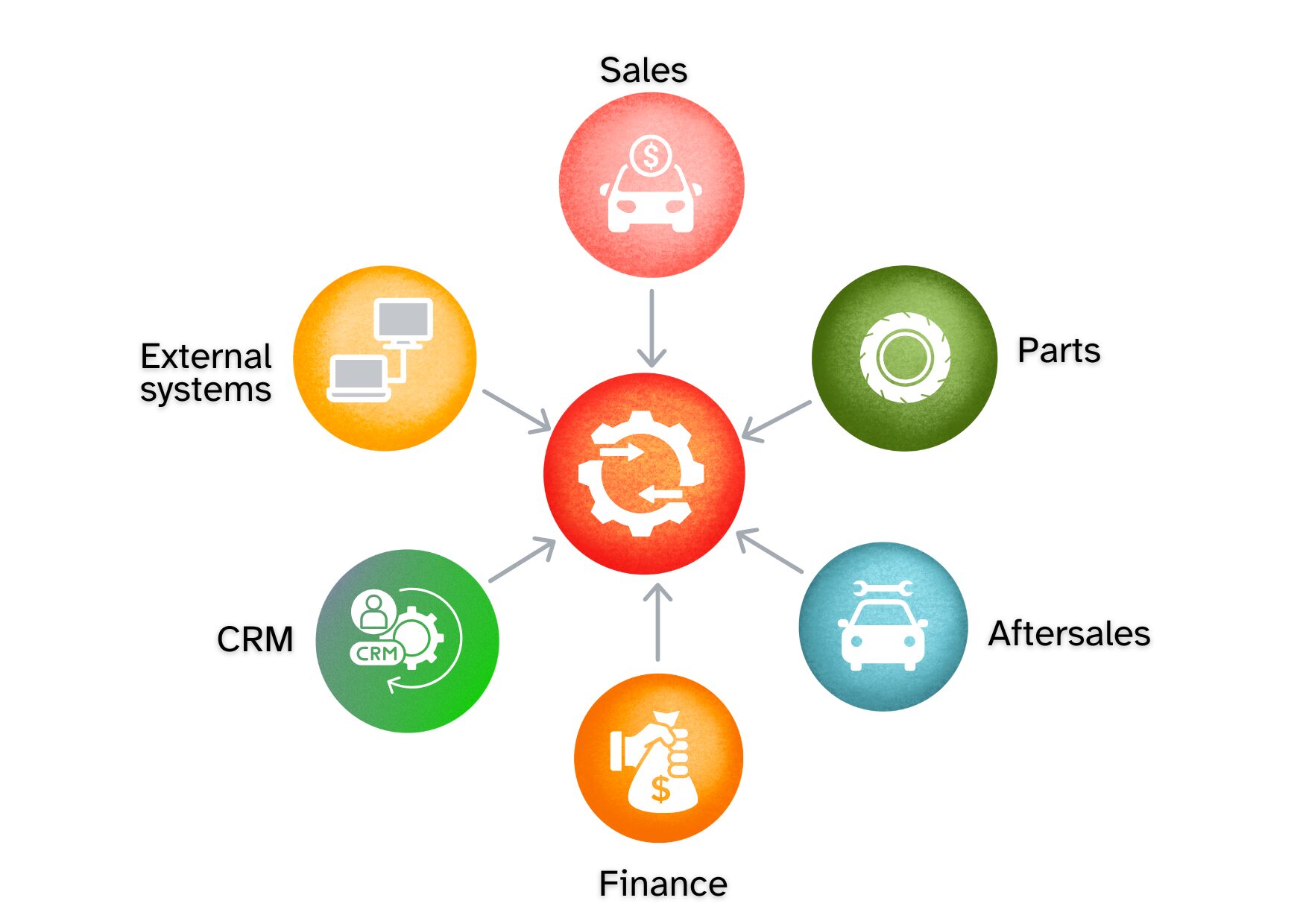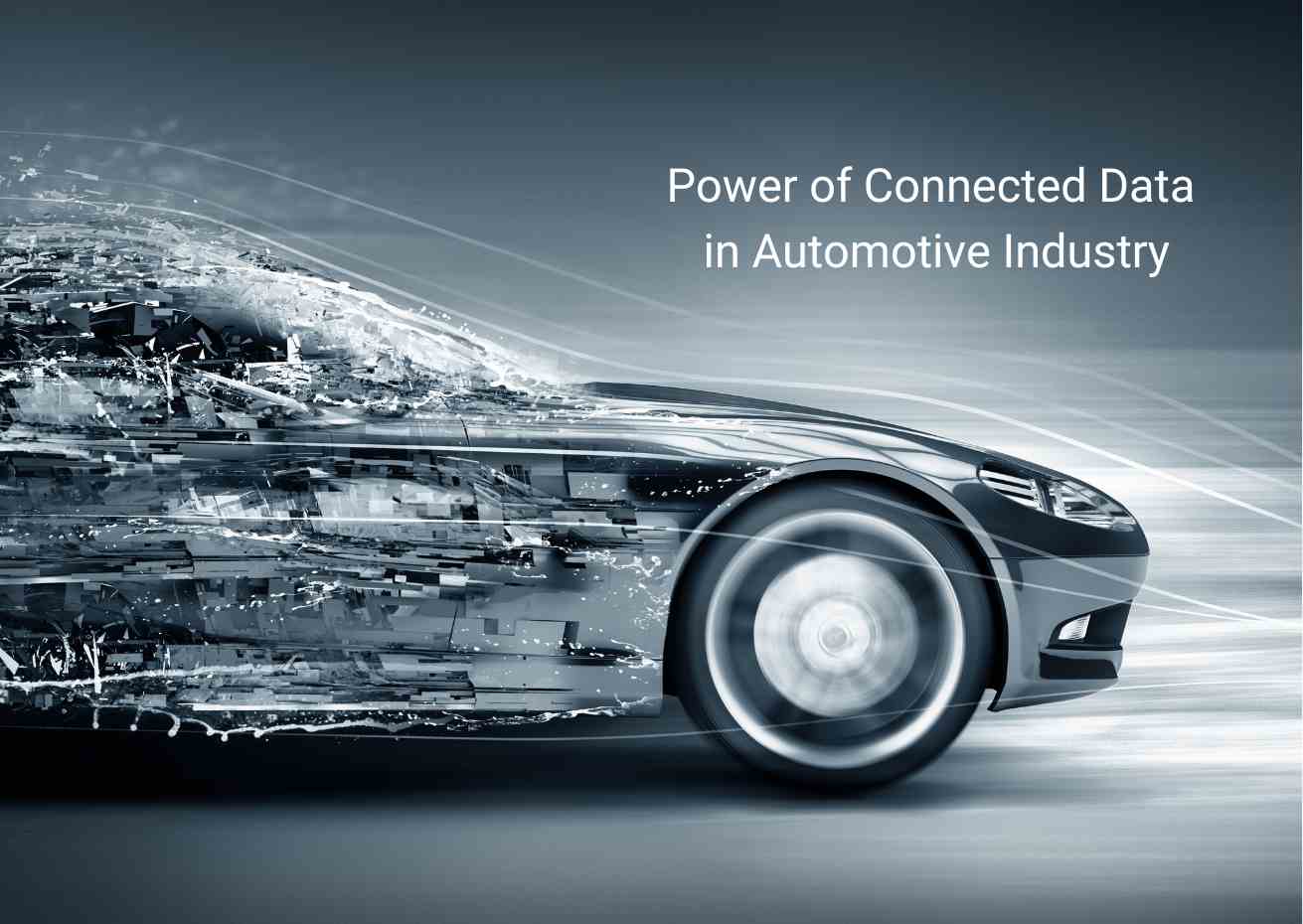In today’s dynamic business landscape, enterprises increasingly rely on a diverse range of specialized applications to address their unique needs. By integrating data from these multiple systems, analytics solutions can deliver unified, comprehensive analysis that drives informed and strategic decision-making. This is especially true in the automotive industry, where a connected ecosystem is essential for staying competitive. Breaking down silos and harnessing the power of integrated data enables businesses to unlock new opportunities, optimize operations, and enhance customer experiences.
With data flowing from sales, aftersales, supply chains, and customer interactions, a fragmented system can limit decision-making and stunt growth. Connecting these systems can unlock valuable insights and drive innovation.
In our experience in the Middle East region, automotive dealerships often operate as part of larger group enterprise. These groups typically have established mature technology preferences, utilizing a mix of leading technologies and sometimes even custom-built applications. To gain a comprehensive view of information, technology solutions must be capable of integrating data from various sources within the group’s preferred technology ecosystem.
How did we overcome the challenges of data siloes?
Achieving a connected ecosystem is not without its hurdles. Data silos—where data is stored across different systems—can fragment valuable insights. To achieve seamless integration and data flow between systems like DMS, CRM, HRMS, OEM systems, a common data lake/ data library is essential. Our structured approach involves integrating multiple systems across departments, teams, and external partners to ensure valuable insights are extracted and utilized effectively.
As a solution provider, we ask our data experts if the right data is available to address the specific questions. Identify the data sources you need now and for future and gather them in one place.
How can businesses ensure a smooth integration process?
To navigate these obstacles, businesses need a structured and thoughtful approach to data integration:
- Clear Vision: Start by defining clear objectives and what your business unit hopes to achieve from system integration.
- Comprehensive Planning: A detailed plan with a well-defined scope, timeline is key to minimizing disruptions.
- Collaboration: Collaboration between teams, departments, and even external partners ensures alignment and a smoother process.
What are the Added values to data integrations:
Integrating various data sources offers a host of benefits that go beyond just efficiency:
- Enhanced Decision-Making: With actionable insights, businesses can make data-driven decisions, optimize operations, and proactively solve problems.
- Improved Efficiency: Streamlining workflows and automating processes reduces manual work, lowers costs, and allows teams to focus on higher-value tasks.
- Better Customer Experience: By utilizing connected data, companies can offer more personalized experiences, improving customer service and driving satisfaction.
- Innovation and Growth: With connected systems, businesses can identify trends, develop new products, and expand into new markets, gaining a competitive edge.
Breaking down silos and connecting systems is no longer optional in the automotive sector. By overcoming challenges and embracing integration, auto-retailers can enhance efficiency, deliver better customer experiences, and foster innovation that drives long-term success.
We are NRoot Labs, specialize in comprehensive BI solutions. As a technology-neutral company, our team of BI consultants excels in delivering business solutions that leverage actionable insights supported by business data. Our commitment to understanding the complexities of business processes enables us to provide enhanced BI solutions for our clients.

